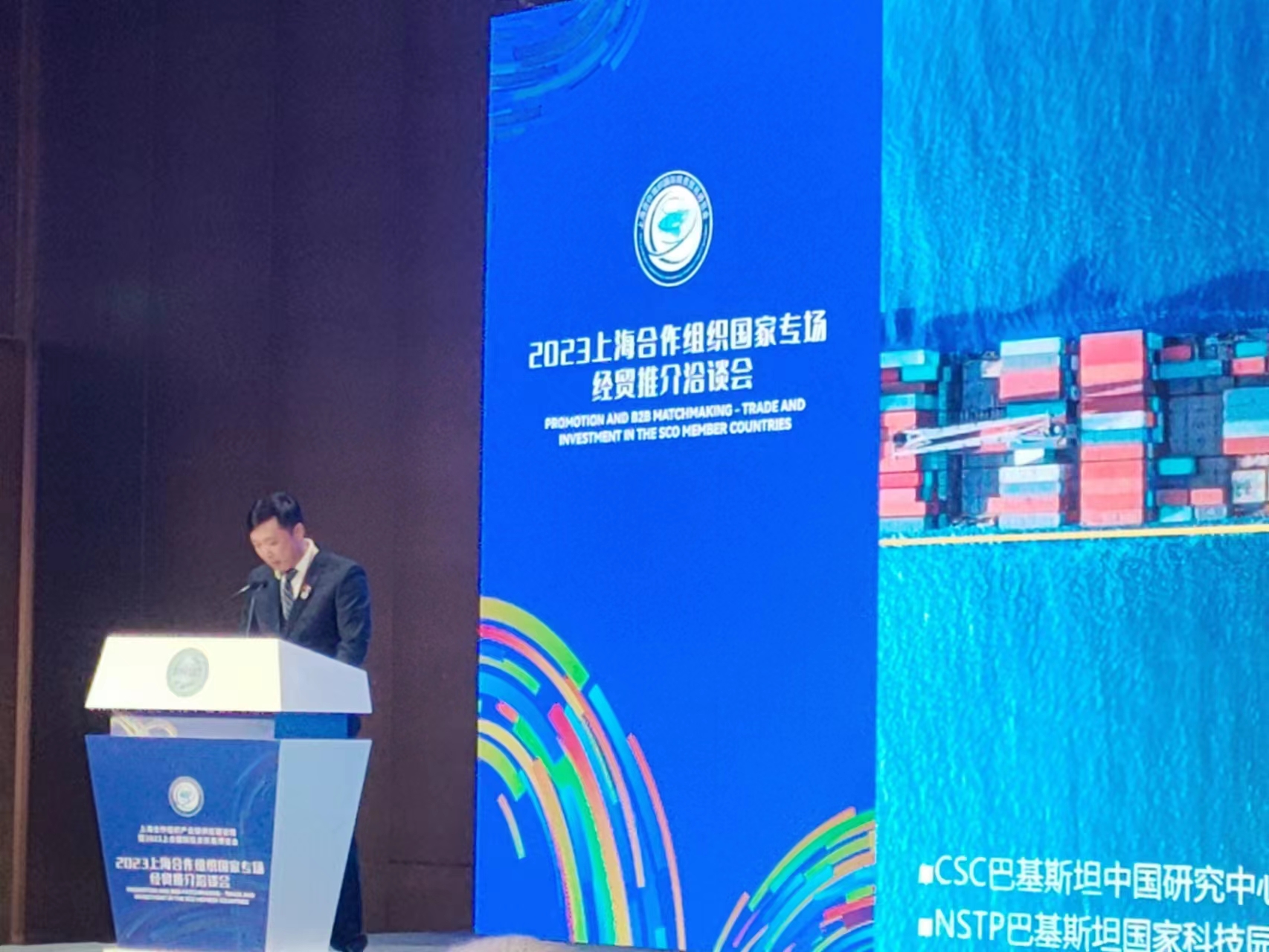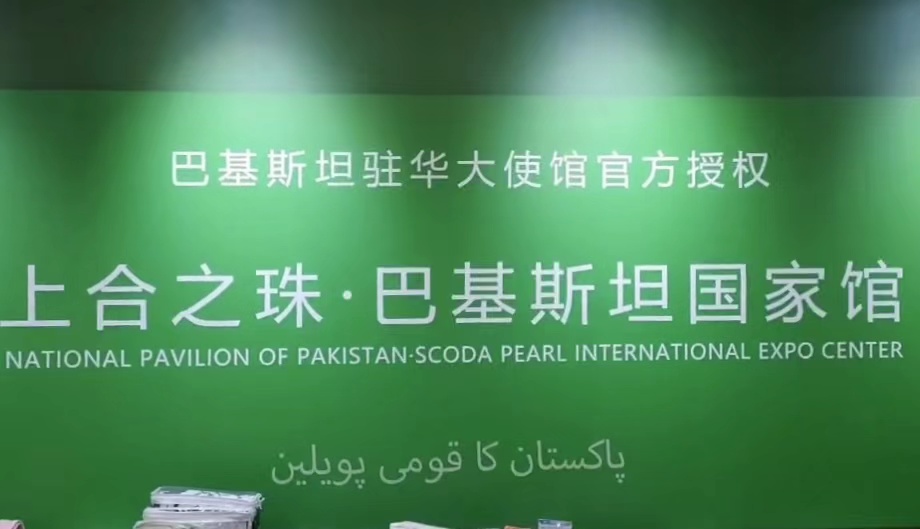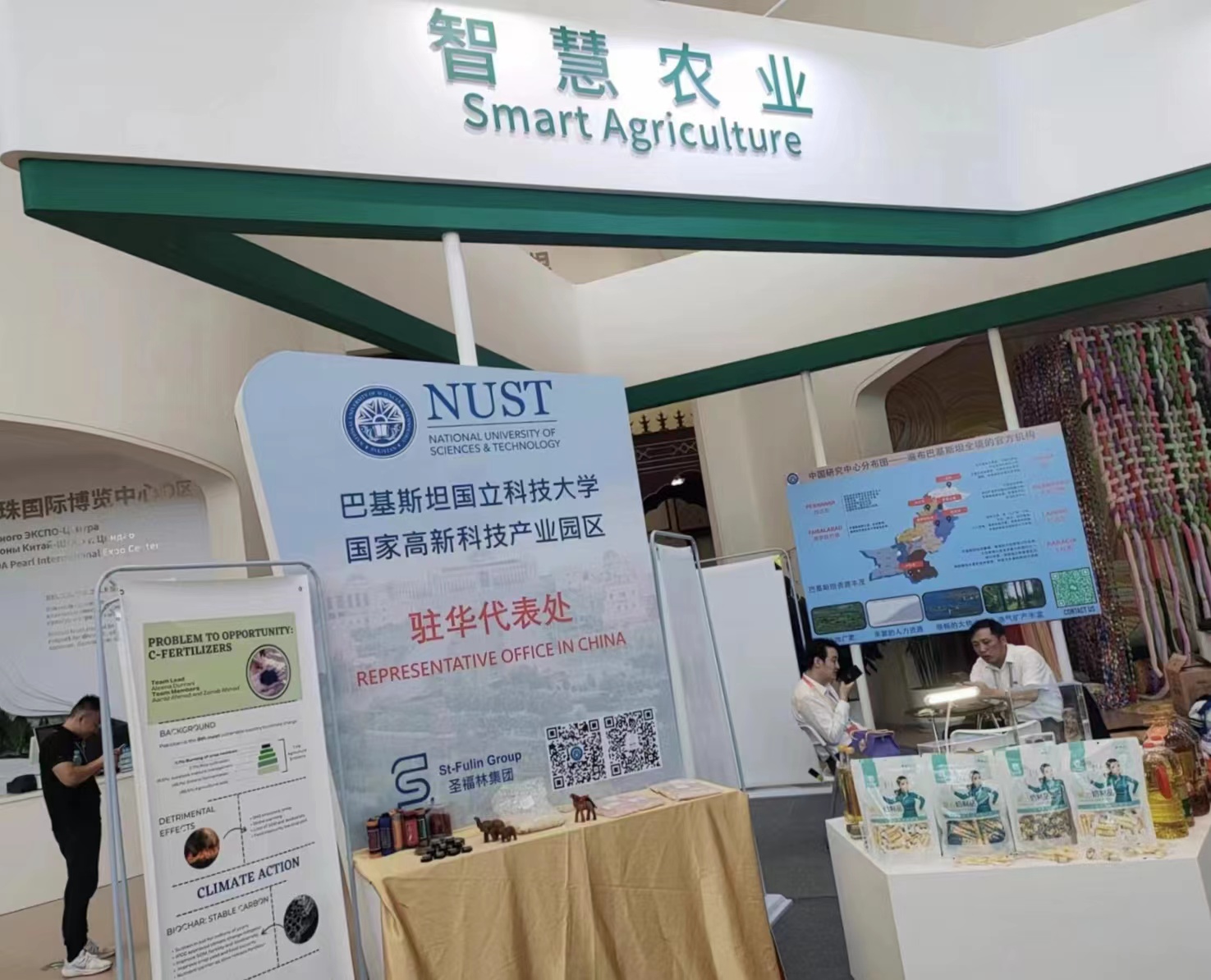Pakistani industrial ecology means endless opportunities:2023 SCO Expo
QINGDAO, June 16 (China Economic Net)- “Today's Pakistan is in line with “good timing, geographical convenience and great human relations” from the traditional Chinese perspective”, noted Wang Jianxun, Senior Advisor of Pakistan National Science & Technology Park.

Addressing as a key speaker at the SCO International Investment and Trade Expo that co-hosted by China Study Center, National University of Science and Technology, Pakistan (NUST) held from June 15 to 18 in Qingdao, a scenic coastal city in Shandong Province, Wang emphasized the environment of “blue ocean” in Pakistan, with the theme of Opportunities and Challenges of Pakistan's Industrial Ecological Chain under the New World Situation.
When technological productivity lacks sufficient capacity to meet national demand, the trade deficit has been increasingly emerging. Pakistan’s current trade deficit has soared to a record high of USD 48.66 billion from USD 30.96 billion a year ago, driven by a sharper-than-expected 57 percent jump in imports. Not only that, Pakistan’s trade deficit widened 32 percent year-on-year to USD 4.84 billion in June as imports grew almost twice as fast as exports.
Such an astonishing demand for imports means that Pakistan’s domestic industrial structure needs to be optimized urgently, as well as scientific and technological productivity needs to be greatly improved. Just like the two sides of a coin, today's status quo also means unlimited opportunities for global companies.
“So far, initial diversified cooperation in various industries in Pakistan has begun to emerge. The special economic zone represented by the National Science and Technology Park (NSTP) has created a spiral development model of “industry + academic + government + public society”; Regarding e-commerce, in NSTP, we will form a two-way interactive simulcast video sales platform in cooperation with China’s Ningbo live broadcast e-commerce base, vigorously promoting Pakistani specialties; The National University of Science and Technology (NUST), Pakistan has formed an effective cooperation mechanism with many top universities in China, such as Tsinghua University, Harbin Institute of Technology, China University of Geosciences, Southwest Petroleum University, etc. In addition, due to Pakistan’s vigorous opening of NFT and other related digital currency technologies, as well as AI and IoT tools, there is also huge room for digital improvement, as a global hot spot,” Wang told China Economic Net.


Leapfrog of science and technology is inseparable from the support of talent pool, as Pakistan’s population under the age of 23 accounts for 76 percent of the country’s total population, it enjoys prominent advantages in labor resources. At present, China’s domestic labor cost is three times that of Pakistan. In industries such as biopharmaceuticals, IT, forging and textiles, Pakistan could be described as rich in talents.
Back to Pakistan itself, this country is also blessed with unique conditions which should not be ignored by anyone. As a traffic springboard linking the trinity of Asia, Europe and Africa, it has trade routes leading to a total of 68 countries around the world. The reporter learned that Pakistan has implemented preferential tariff reduction and exemption policies for 188 Chinese projects, which is a major benefit for companies in various fields that are involved in the construction of the China-Pakistan Economic Corridor (CPEC).
“Last year, Prime Minister Shahbaz Sharif signed the China-Pakistan Joint Statement with Chinese leaders during his visit to China. Health corridors, industrial corridors, digital corridors and green corridors have been developing step by step,” Wang introduced, “enterprises in key fields such as China Mobile, Huawei, Cogniser, Hikvision, and Loongson Technology have laid a solid foundation for the establishment of an all-weather industrial ecological chain between China and Pakistan.”




